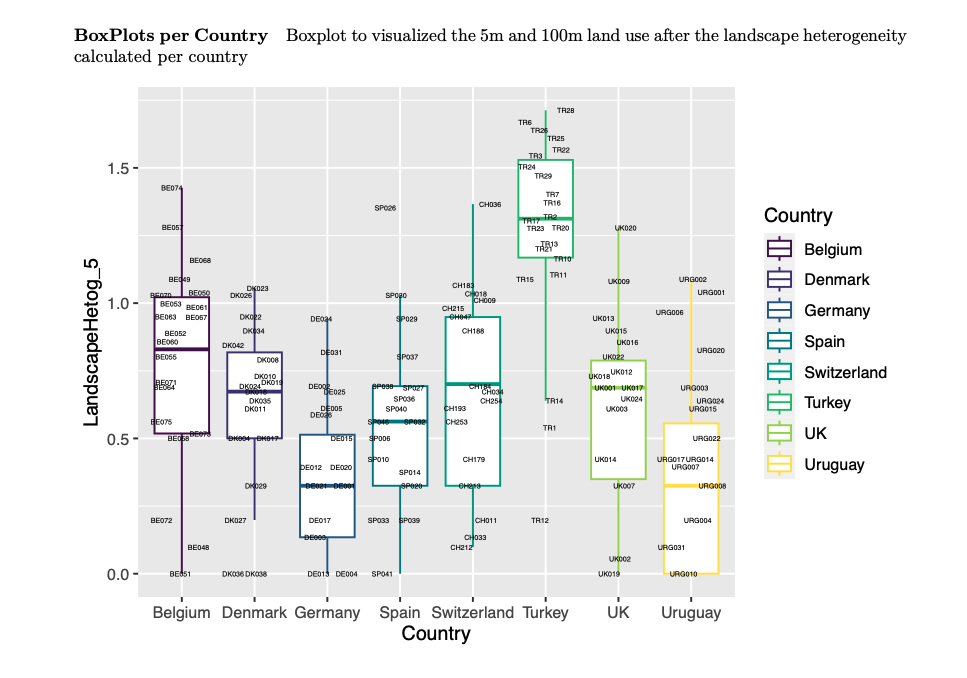
Maria Cuenca-Cambronero
About me - CV
Drop me an email! maria.cuenca@uvic.cat
Research experience
My research focuses on aquatic ecology, with freshwater systems becoming the lens through which I investigate some of today’s most pressing environmental challenges. I completed my PhD at the University of Birmingham, where I studied the evolutionary responses, both at the molecular and phenotypic level, of Daphnia magna populations to eutrophication and climate change over 100 years of evolutionary history. After my PhD, I moved to Switzerland with an EMBO postdoctoral fellowship at Eawag (Fig. 1), where I explored how zooplankton communities respond to fish predation and nutrient enrichment using artificial pond experiments and long-term time series data.
During my second postdoc, I returned to Spain, where I began developing my current research line focused on ecosystem functions and their links to biodiversity across different environmental gradients. I have a special interest in Mediterranean ecosystems, as they are highly threatened by climate change and anthropogenic pressures. I played a leading role in the PONDERFUL project (Fig. 2), investigating how climate and land use affect ecosystem functioning in small ponds. Currently, I am involved in the TRANSPONDER project, where I play a leading role focusing on the functional diversity of pond ecosystems across Europe and how this diversity is shaped by environmental drivers.
My personal and professional journey has provided me with a broad set of skills, from fieldwork and laboratory techniques to advanced statistical modelling. I remain deeply motivated to use ecological research to inform conservation efforts, enhance ecosystem resilience, and better understand the adaptive capacity of life in a rapidly changing world.
Some skills
I began my scientific career working in population genomics during my PhD, where I developed strong laboratory skills. I then continued my research on zooplankton communities using artificial pond experiments. Over time, my focus shifted toward natural ecosystems, where I have specialised in studying ecosystem functions and functional diversity.


Statistical analysis and Illustrations
Learn moreWhat drives my scientific curiosity
Since childhood, I’ve always been curious about the natural world, drawn to the complexity of life and the invisible threads that connect organisms, environments, and ecosystems. This early fascination led me to study Biology at the University of Valencia, Spain. I was inspired by the breadth of the field, which allowed me to explore the many layers of nature. This curiosity also sparked a passion for travel early in my academic journey, taking me to Toronto (Canada), Bremen (Germany), and Caen (France) during my undergraduate studies.
After my BSc, I pursued a Master's degree in Biodiversity and Ecosystem Conservation at the University Pablo de Olavide, Seville, where I began to shape a clearer path toward a PhD. During this time, I explored various disciplines within biology: I worked with Iberian lynx for my MSc thesis, volunteered with amphibians studying phenotypic plasticity, assisted in bird surveys as a field technician (Fig. 1), and contributed to marine mammal conservation, studying dolphins in the British Channel (Fig. 2). These diverse experiences provided me with a broad foundation and strengthened my interest in understanding how anthropogenic pressures affect ecological communities and ecosystem functioning.

Field work, Madrid, Spain

Field work, Caen, France
I spent four month on the GECC working with dolphins.